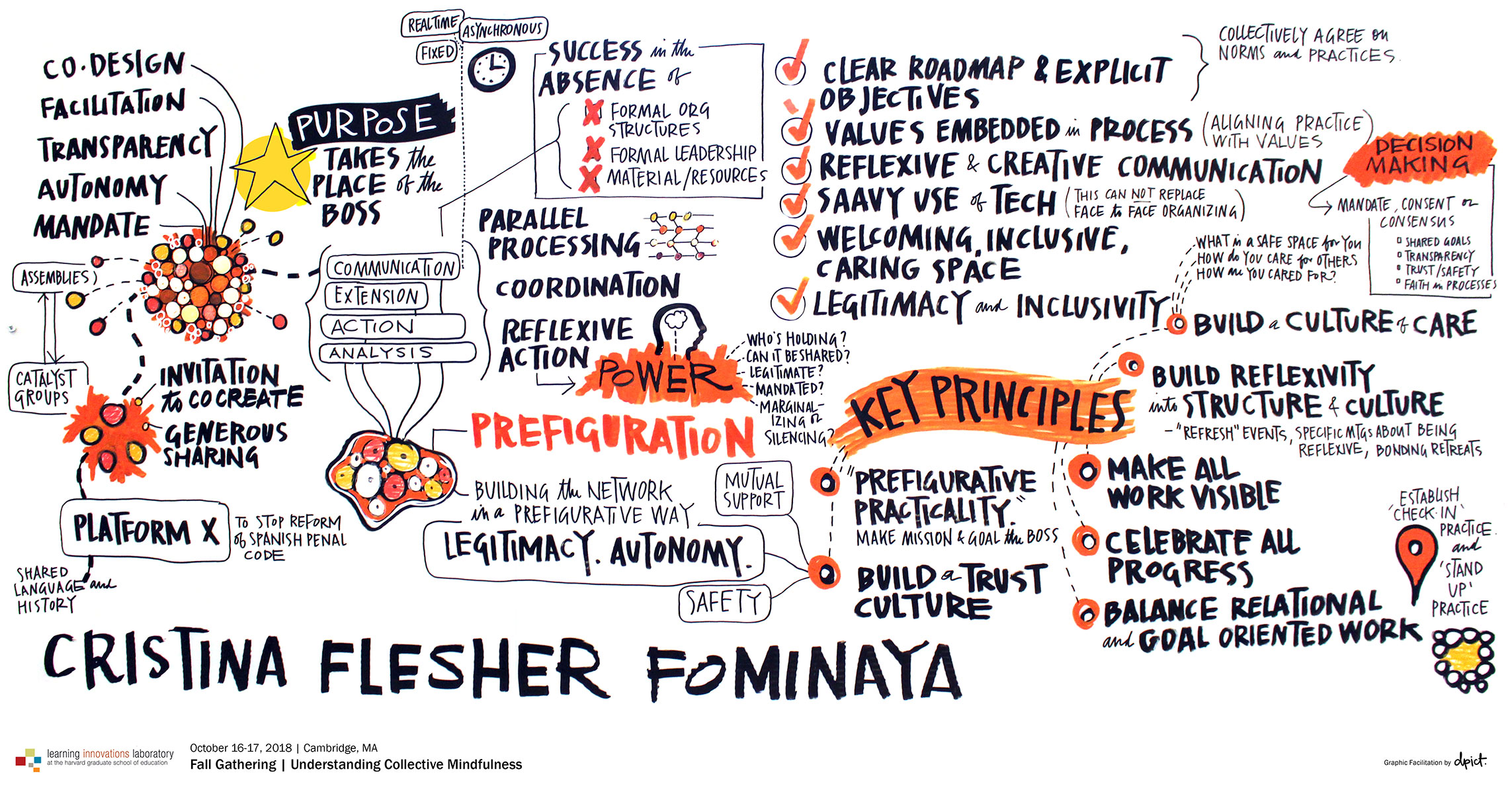 How to collectives organize in moments of political change? Christina shared her ideas based on her studies of how autonomous networks organize around social change movements. These groups operate on decision-making principles of consent, consensus, and mandates. The actor isn’t the organization. An organization is just a container, it is the individual actors. The organization only exists to reach its goal, not to ensure its permanence. This is different from other forms of social movements that are institutional – such as non-profits, government groups, etc.
How to collectives organize in moments of political change? Christina shared her ideas based on her studies of how autonomous networks organize around social change movements. These groups operate on decision-making principles of consent, consensus, and mandates. The actor isn’t the organization. An organization is just a container, it is the individual actors. The organization only exists to reach its goal, not to ensure its permanence. This is different from other forms of social movements that are institutional – such as non-profits, government groups, etc.
Her studies look at how autonomous collectives attempt to change inequalities in society – economic, political, etc. A key concept in the process is “prefiguration” – they attempt to create tools and practices that prefigure a new possibility. They put their vision into action into how they organize. This is very, very difficult. How do they do this: they invest heavily in “relational goods” — developing clear social values to participants so they can feel connected to a purpose.
Successful social movements devote attention to the core organizational systems, but also think about how to involve new people quickly through key pedagogical experiences so new comers can learn the new norms. Collective identity is the key here: the shared sense of belonging and reciprocal identification. It is developed through interactions among the members that reinforce the affective experience of being part of the group.
Keys to a collective are what & why, who, how. What is the clear purpose? Why is this compelling. Who is involved? What are the different types of participation and what is the shared identity. What are the core cultural practices of the collective? The HOW, it turns out, is often the most difficult because it requires reflecting on cultural assumptions of basic forms of interactions.

Add a comment